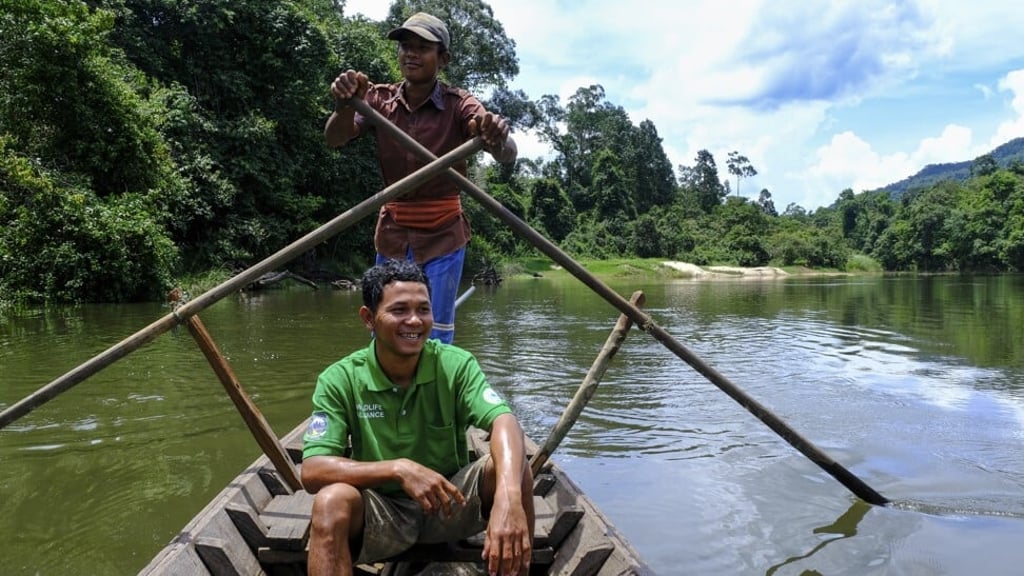How eco-tourism saved this stunning Cambodian valley and is key to attracting visitors back after Covid-19
- One of the leading eco-tourism locations in Cambodia, the Areng Valley is home to animals hunted to near extinction elsewhere in the country
- Domestic tourists are starting to return, bringing much-needed income to locals who could start exploiting the forests again if desperate

“Mind your head, you are too tall!” warns Rin Rith with a big grin as we dodge another low-hanging branch, the motorbike he is driving skidding along a forest path made muddy by a rain shower. We are hurrying to the base of Mrech Kongkep Mountain, to set up camp. In the fading light, flashes of orange break the dense green of Cambodia’s Areng Valley forest.
Cambodian monks, like monks in Thailand, have sought to save what remains of their forests by tying religious observance to protection and have wrapped orange robes around large tree trunks. The trees that remain in this area of Koh Kong province – a five- to seven-hour drive west from the capital, Phnom Penh – point to some success, but with Cambodia having lost an estimated 1.6 million hectares of forest since 2001, the scale of the problem is stark.
Rith used to spend weeks at a time in the vast Cardamom forest, which covers a swathe of southwest Cambodia and of which the Areng Valley is part, looking for animals and plants to sell. Since 2016, he has guided tourists instead, and taken to subsistence farming in the downtime.

He has been doing a lot more farming than he would have liked following the shutting of Cambodia’s borders in March against Covid-19, and because of the economic impact the virus has had across the country. The borders are still shut to much incoming travel but as local fears of the virus have subsided – Cambodia has recorded less than 150 cases and no deaths – people are venturing out to explore their own country.